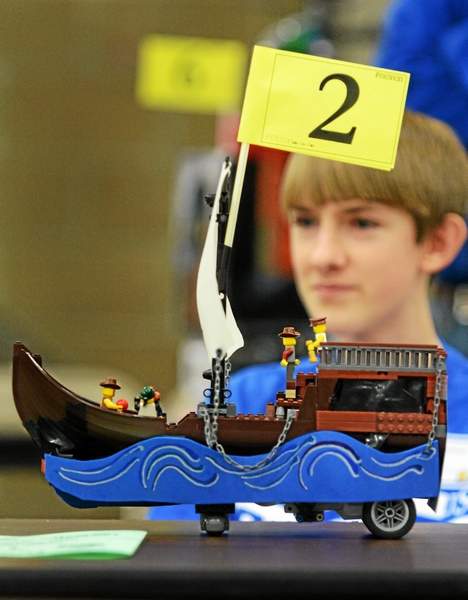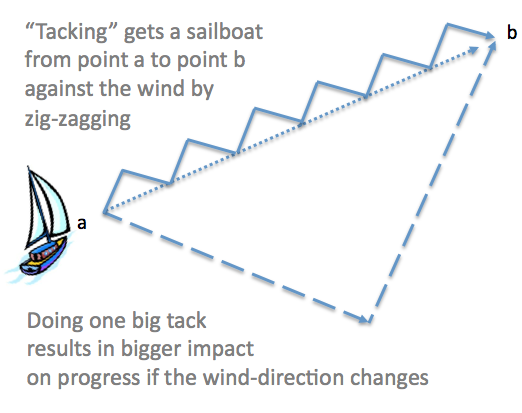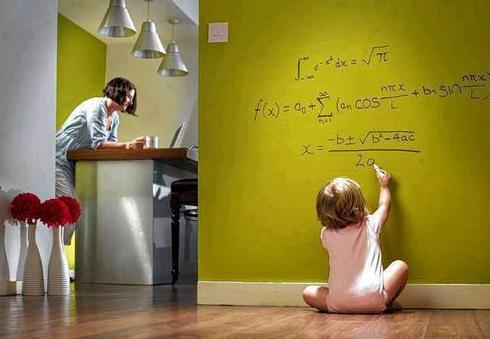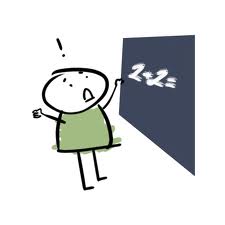Gamification STEM learning
Gamification, for those of you too busy earning a living and raising a family to keep up with the new words added almost daily to the popular tech lexicon, is a term first used by Nick Pelling a British computer programer in 2010. According to Wikipedia the term has come to mean "the use of game thinking and game mechanics in non-game contexts to engage users in solving problems".
So what does that mean in the context of STEM learning?
- 0 Comments
- Dec 10, 2013 10:21:00 AM
- Posted by Mike Nardine
- Topics: Math, EdTech, STEM, Education, Student Engagement
Thanksgiving RoboParade - What a great idea!
Move over Macy's, here comes the Thanksgiving Robo parade at Macomb Community college in Warren, Michigan. Put on by middle schoolers from Jefferson Middle School in St. Clair Shores, it demonstrated the creativity, drive and technological skills students will continue to show in the future if this country of ours is to remain competitive in the world technological arena.

- 0 Comments
- Dec 7, 2013 10:16:31 PM
- Posted by Mike Nardine
- Topics: Robotics
Report Discusses Teaching with Technology - In Which Percentile Are You?
It should come as no surprise that the results of a recent Pew Research poll of middle and secondary teachers across the United States showed that the use of digital technology has become an integral part of their teaching method.
Fully 92% of polled teachers admit the Internet has had a major impact on how they access classroom material. Almost half report using an e-reader or tablet to complete classroom assignments.
Perhaps more surprising is the number of educators willing to allow students to do research in the classroom with the cellphone. Apparently undaunted by fears of cell phone interruption or distracted students (or maybe just trying to make a virtue of necessity), 52% of teachers in upper and middle-class districts and 35% of teachers with lower income kids let them work on their assignments with smartphones.
- 0 Comments
- Dec 4, 2013 8:00:00 PM
- Posted by Mike Nardine
- Topics: EdTech, Education
Sailing into knowledge: Learning math and geometry on the ocean
Up until recently the concept of “learning math by doing it” meant some terminally embarrassed student standing in front of a class of tittering fellow students while desperately trying to solve a completely (to his life, at any rate) irrelevant problem, or that same student sitting home that night at his kitchen table trying to stay awake while solving one meaningless, irrelevant equation after another. His teacher hoped this process would result in the student memorizing math procedures and learning to perform them quickly and accurately. Perhaps even becoming a math teacher himself.
What usually happened, however, was that he decided to dedicate his life to getting as far away from math as possible. He became an... an English major writing meaningless SEO blog posts that no one reads flogging products for some uncaring corporation, when he could have been looking for a cancer cure or charting a route to Mars.
But that was then and this is now! The rapid advance of technology and the absolute necessity of keeping this nation in a competitive position Vis-à-vis the rest of the world has forced many schools to create a more relevant math curriculum, thereby bridging the gap between math’s abstract concepts and reality and increasing relevancy. Our Sister’s School in New Bedford Massachusetts, for example, teaches the relevancy of math by way of the sailing ship. The young ladies learn the math behind tacking, the art of sailing against the wind.

- 2 Comments
- Nov 27, 2013 12:46:14 AM
- Posted by Mike Nardine
- Topics: Math, Student Engagement, Geometry,
Augmented Reality practice in math classroom?
What the heck is “augmented reality?” That was my first thought when first seeing the phrase in a related post. No, I take that back; to tell the truth, like most people I asked, I thought it was merely another way to say “virtual reality.” But It most certainly isn't...
This according to the Wikipedia: Augmented reality (AR) is a live, direct or indirect, view of a physical, real-world environment whose elements are augmented (or supplemented) by computer-generated sensory input such as sound, video, graphics or GPS data. By contrast, virtual reality replaces the real world with a simulated one.”
Let’s put it another way: augmented reality is to The Minority Report with Tom Cruise as virtual reality is to Inception with Leonardo Dicaprio. Remember in The Minority Report when Tom Cruise stood facing a huge transparent computer screen manipulating images and data with gloved hands? That manipulation, a combination of real objects (gloved hands) and digital reality (data and images), makes for a perfect example of augmented reality (a teacher holding the control tablet from the RobotsLAB BOX in his hand can impose data on the real world the way Tom Cruise did--and he wouldn’t have to wear gloves!) On the other hand, Leonardo DiCaprio's avatar immersed in a simulated dreamworld, is a perfect example of virtual reality.

- 0 Comments
- Nov 25, 2013 11:29:51 PM
- Posted by Mike Nardine
- Topics: Math, About the BOX, EdTech, 21st Century Classroom, algebra,
A Grant from SF CEO to SF City Schools
"Mayors just dream of these opportunities."
That’s what San Francisco Mayor Ed Lee said after he and schools Superintendent Richard Carranza met with Salesforce.com (SF) founder Marc Benioff. What they were asking for was some financial support for the city’s 12 middle schools to increase technology access. They wanted money to purchase several hundred Ipads for students and training for affected teachers. They thought their request was reasonable if expensive.
 Marc Benioff Salesfoce founder
Marc Benioff Salesfoce founderWhat they got was a surprise: "You have to think bigger," Marc Benioff told them. At the end of the day what Mayor Lee and Superintendent Carranza actually walked away with was the Ipads they had originally asked for and a $100,000 grant to every principal at the 12 middle schools. The total donation came to almost three million dollars!
- 0 Comments
- Nov 23, 2013 3:02:00 PM
- Posted by Mike Nardine
- Topics: EdTech, Grants, Middle School
Imagery a key to understanding math
There is no shortage of quotations referring to math as beautiful--just Google “math and beauty” and you’ll see what I mean. But my favorite quote comes from G. H. Hardy (1877 - 1947), an English mathematician known for his work in numbers theory and mathematical analysis.
He said,“The mathematician's patterns, like the painter's or the poet's must be beautiful; the ideas, like the colors or the words must fit together in a harmonious way. Beauty is the first test: there is no permanent place in this world for ugly mathematics.”

- 0 Comments
- Nov 22, 2013 1:48:03 AM
- Posted by Mike Nardine
- Topics:
Why kids take on adult math anxiety

Of course the answer to the question posed by the title of this article is simple: Adults!
Adults instill in children their own feelings about certain learning disciplines like math and science.
Studies show that children tend to follow the lead of the same-sex parent where learning is concerned. Mothers discouraging daughters, fathers discouraging sons.
But both are guilty of perpetuating harmful stereotypes with comments like "girls are usually better readers", or "boys do better at math!"
Teachers, in spite of their training are often guilty of the same mistakes when working with kids.
- 0 Comments
- Nov 15, 2013 11:50:00 AM
- Posted by Mike Nardine
- Topics: Math, EdTech, Education, Student Engagement
Our future depends on EdTech (Teaching tech, and teaching with tech)
Technology isn’t a part of the core curriculum in most American school systems? That’s a question mark at the end of the last sentence, not a period, because this writer find it hard to believe that is the case. But that’s the view of educator and co-founder of the IT Academy, Cullen White. He complains that most IT courses and many technology courses centered around the digital universe are considered “non-essential” and therefore weighed as electives on the curriculum grade-scales in most schools. (Just like we saw few days ago that a school in Las Vegas teaches computer science with a pen and paper...)

The future is in tech
OK, ignoring the obvious unprofitable future this country faces if we find ourselves net-importers of information technology instead of net-exporters, why should technology courses become part of the core curriculum like English and math?
- 0 Comments
- Nov 12, 2013 11:19:50 PM
- Posted by Mike Nardine
- Topics:
How to improve Math proficiency in 21st century classroom
Once upon a time...and not all that long ago, teachers found motivating youngsters to engage themselves in the wonders of mathematics a difficult proposition--which is not to say that educators here in the 21st Century have completely overcome all the difficulties. No, it still takes a committed teacher to break down the barriers both societal and unique to the child to get it done.
Prof. Alfred Posamentier, Dean and professor of mathematics education at Mercy College, NY suggests 9 strategies a teacher might use to engage students with mathematics:
- 0 Comments
- Nov 11, 2013 1:50:00 PM
- Posted by Mike Nardine
- Topics: Math, 21st Century Classroom, Student Engagement
Relevant Posts
Popular Posts
Subscribe to Email Updates
-
I Want To Learn MoreADDITIONAL INFORMATION



